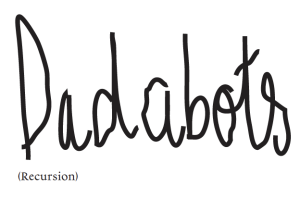P-Prompt: re:re:re:er:ri mixtape: Difference between revisions
No edit summary |
No edit summary |
||
| Line 11: | Line 11: | ||
[[File:Erri Ammonita re-re-re-er-ri mixtape.jpg|800px]] | [[File:Erri Ammonita re-re-re-er-ri mixtape.jpg|800px]] | ||
[https://reuse.constantvzw.org/images/a/a0/Erri_Ammonita_re-re-re-er-ri_mixtape_booklet_2024.pdf Download booklet ''re:re:re:er:ri mixtape'' PDF] | [https://reuse.constantvzw.org/images/a/a0/Erri_Ammonita_re-re-re-er-ri_mixtape_booklet_2024.pdf Download booklet ''re:re:re:er:ri mixtape'' (PDF)] | ||
Both the booklets and mixtapes are in slow hand-to-hand pick-up circulation. If you would like to receive the tape and booklet, do write us an email, and we'll put it in our or a friend's bag, when a trip to your destination is on the schedule. | Both the booklets and mixtapes are in slow hand-to-hand pick-up circulation. If you would like to receive the tape and booklet, do write us an email, and we'll put it in our or a friend's bag, when a trip to your destination is on the schedule. | ||
Revision as of 10:14, 25 July 2024
Erri Ammonita share four stories about selected songs copied on 19 used cassette tapes decorated with found letters. The stories printed in a booklet and the music on the mixtapes bring up the many layers of reuse that form part of making music. It is a contribution to think along with the CC4r about the ethics and politics of re-use, through music. Each story engages with (and sometimes provides a possible answer to) one of the following questions:
- How to collectively resist appropriation outside legal frameworks?
- What type of reuse is the indiscriminate and automated one brought on by machine-processes? Why and how to take collective stances towards it?
- Can reuse without consent of “original authors” happen in a response-able and critically implicated manner?
- How does something stereotypical, offensive and mercenary get turned into something empowering and radical, and vice versa?
Download booklet re:re:re:er:ri mixtape (PDF)
Both the booklets and mixtapes are in slow hand-to-hand pick-up circulation. If you would like to receive the tape and booklet, do write us an email, and we'll put it in our or a friend's bag, when a trip to your destination is on the schedule.

(Resistance)
A1 The Aztec Mystic - Jaguar (6.38)
A2 Type - Jaguar (Original Covered Version) (6.37)
A3 The Aztec Mystic - Jaguar (Mad Mike Remix)(4.21)
(Recursion)
AA1 Archspire - Involuntary Doppelganger (3.46)
AA2 Dadabots - Relentless Doppelganger (as long as Youtube allows)

(Relation)
B1 COOL FOR YOU - STRATEGICALLY ADAPTABLE (3.17)
B2 COOL FOR YOU - SEEING DIFFICULTIES (1.58)
B3 COOL FOR YOU - SHAME/HUMILIATION (2.08)
B4 COOL FOR YOU - STABILIZED, YES! (2.40)
B5 COOL FOR YOU - SHE WHOSE BLOOD (3.24)
B6 Sacred Harp Convention 1959 - #112 The Last Words of Copernicus (1.41)
B7 Sacred Harp Convention 1959 - #215 New Topia (2.00)
(Recast)
BB1 Bert Weedon - Apache (~0.30)
BB2 The Shadows - Apache (~0.30)
BB3 Jorgen Ingmann - Apache (~0.30)
BB4 The Ventures - Apache (~0.30)
BB5 Davie Allan and the Arrows - Apache (~0.30)
BB6 The Incredible Bongo Band - Apache (~0.60)
BB7 The Adventures Of Grandmaster Flash On The Wheels Of Steel (~0.30)
BB8 West Street Mob - Break Dance - Electric Boogie (~0.30)
BB9 Sugarhill Gang - Apache (~0.30)
BB10 Missy Elliot - We Run This (~0.30)
BB11 TLC - Hat 2 Da Back (~0.30)
BB12 Goldie - Inner City Life (~0.30)
BB13 FSOL - We Have Explosives Remix (~0.30)
BB14 Aphex Twin - Heliosphan (~0.30)
BB15 The Roots - Thought At Work (~0.30)
BB16 Scooter - Apache (~0.30)
BB17 Soundmurderer and SK1 - Call da Police (~0.30)
BB18 Rage Against The Machine - Renegades of Funk (~0.30)
BB19 Amy Winehouse - In My Bed (~0.30)
BB20 Bizzy B - 2099 dub (~0.30)
BB21 Jahba - Bush (~0.30)
BB22 Action bronson - Mofongo (~0.30)
BB23 NAS - Made you look (~0.30)
BB24 Dj Scud & Christoph Fringeli - Something Violent (~0.30)
BB25 Night Tapes - Humans (~0.30)

Recursion
A song with a layered story, a reminder of
how unpredictable paths a song can take when
recording supports come in: with empty or
problematic backgrounds, (parts of) this song
became a source for empowering and meaningful
music.
The origin of the song «Apache» is not that
important, and by the way it kinda sucks:
the original song was written in 1960 by Bert
Weedon, «inspired» by American Western
movies and their caricature of the relations
between Native Americans and Settlers. The song
is then covered by a band called The Shadows,
and has medium success in the UK, and then in
Denmark by Jorgen Ingmann, the covers take an
«Hawaiian» twist, and the song becomes a hit
for the first time. A few other «surf versions»
follow but then this cover series dies out.
«Apach» reappears in 1972, retaken by The
Incredible Bongo Band, formed for writing the
soundtrack of the B-movie «The Thing with Two
Heads», a blaxploitation-science-fi ction-comedy
film. Their cover of the song introduces a long
hand percussions and drums solo, making it
perfect reuse material during the first emergence
of Hip Hop culture in the early 70s. DJs would
search for obscure records in crates at record
shops, looking for beats you could dance to at
block parties. So DJ Kool Herc finds the record of
The Incredible Bongo Band, which thanks to its
long drum break, he can use in his «Merry-Go-
Round technique» that loops drum breaks on two
of the same record, endlessly as a background for
breakdancing.
As DJ’s would usually do back then, he would
hide the label of the record at performances to
gain a certain exclusivity and create his sound
signature.
